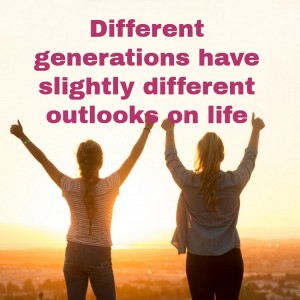It might feel like we’ve barely scratched the surface of how millennials prefer to work, and how they influence our workforce. But there’s a new gang of kids on the block – “Generation Z” – and they’re about to start flooding our workplace. What is “Generation Z”?
We’ve been naming different generational cohorts for decades. For example, anybody born between 1890-1915 belongs to “The Lost Generation”. And anybody born between 1946-1964 is a “Baby Boomer”.
The latest generation to be named, is Generation Z – and it includes anybody born from 1996. This means that many people from Generation Z are already of working age. Perhaps your hr department even employ some of these people already!
But why is it important for your hr department to understand what each generation is all about?
Different generations have slightly different outlooks on life
While studying the differences between generations is not an exact science, we do tend to see slight shifts between each different cohort. As the world evolves, and as technology advances, new people entering the world see it in a slightly different light.
In order to manage a successful and productive workforce, it’s important to understand the people your hr department is hiring. And one way of doing this, is by learning about the different outlooks these people have on life – the topics that are important to them, the way they like to work, and how they learn and grow most effectively.
Three things Human Resources should know about Generation Z
There isn’t a lot of scientific data in circulation about Generation Z. At least not compared with the amount of data you can find when you research a generation like Millennials. But there are three distinct traits that many people from Generation Z exhibit – and it pays to understand how these might influence your people management style.
They’re all about the smartphones. Almost everybody own a smartphone these days. But Generation Z takes their love for this technology to a whole new level – some would even say they’re hooked! This is why they’ve been nicknamed “iGen”, and it’s also why we need to start re-thinking things like our smartphone policies at work. To a person from Generation Z, the idea of leaving their smartphone at home is the thing of nightmares.
And try as you might to regulate the type of technology you allow in the workplace, it’s going to get harder and harder to enforce. Rather than try to stop this change, you might do better to embrace it, and think about how you might somehow incorporate this deep and growing love for smartphones into your company culture – for example, by implementing HR software that is optimised for any device.
They are entering the workplace with less job experience. This is nothing to do with the fact that they are the youngest generation. What I’m talking about here, is how summer employment is at an all-time low – meaning people from Generation Z seem to be building less work experience during their early years, than previous generations built during theirs. So think about what you can do to better induct your young new starters into your workplace – and how you can better teach them to get along with their colleagues.
Their self-esteem is directly linked to social media. Love it or hate it, Facebook has a grip on this young and emerging generation. The claws of social media are firmly in, and 42% of people from Generation Z say that it directly impacts the way they feel about themselves. A healthy and happy workforce is important to your company’s success, so you might wish to think about the role social media plays on your internal people strategy. Do you encourage your employees to display positive and inspiring behaviour when using social media? Or do you try to bury your head in the sand, and banish it “out of sight out of mind”?
How to build a strong learning and development strategy for Generation Z
So how do you build the skills and abilities of people you employ from Generation Z? Research by Barnes & Noble College gives us some interesting statistics about the way this cohort learns best:
– 51% learn best by trying things out
– 38% learn best by reading or watching information
– 12% learn best by listening to information
Perhaps this suggests the need to move our existing learning and development strategies away from a “classroom” environment, and into a more practical environment?
I would say this is really the time for your hr department to revise all HR policies, practices, and procedures that doesn’t fit for the Generation Z.


